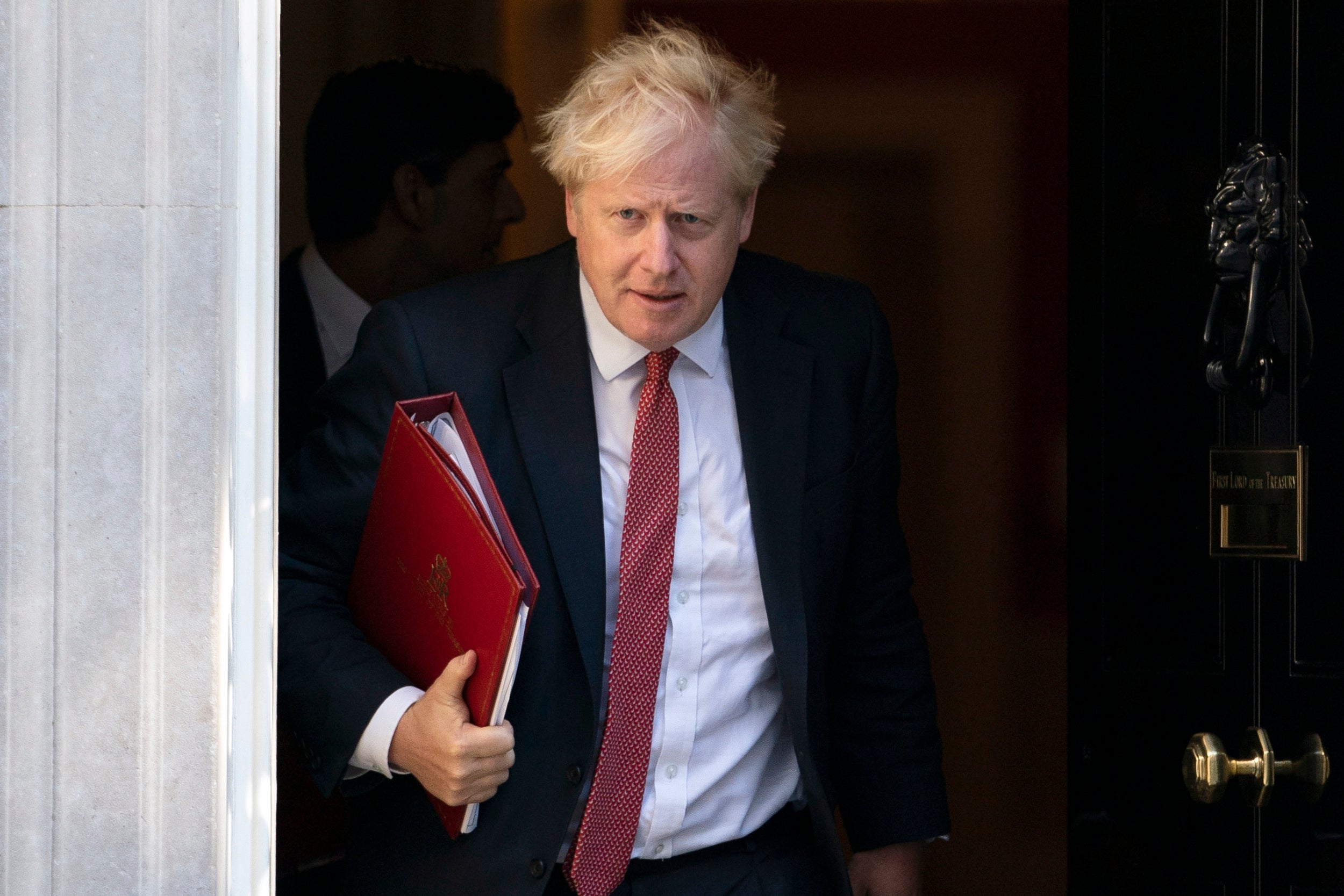How Boris Johnson’s Brexit backtrack puts more than trade at risk
Making changes at this stage opens up the entire withdrawal agreement, writes Sean O’Grady


The UK-EU withdrawal agreement is the “divorce settlement” for Brexit, and was finally signed last October, endorsed by the British electorate in the December general election, and approved by the new House of Commons in January. It was also endorsed by the EU authorities (it did not need to be ratified by all regional and national assemblies, as any further trade deal will be). It came into force on 1 February. It covers the transition arrangements due to end on 31 December, plus some continuing aspects of UK-EU relations, such as citizens’ rights and the Irish border, and maintains the Good Friday Agreement.
Boris Johnson famously dubbed it his “oven-ready deal” to “get Brexit done”. Even if that were correct – and of course the new trading relationship has not yet been determined – the withdrawal agreement, and thus Brexit itself, is now coming under renewed pressure, mainly because of the failure, so far, of the trade talks. The withdrawal agreement has the settled legal status of an international treaty, and is the “prerequisite”, according to the EU, if a harmonious future relationship. It has legal force in the way the political declaration which accompanied it did not. Neither party can alter the withdrawal agreement unilaterally.
Nonetheless, there are two ways in which the British are seeking to make the UK-EU withdrawal agreement work in Britain’s interests, and they are getting a little mixed up. One is mostly legitimate, the other mostly not.
The withdrawal agreement itself is not quite complete, and contains provisions for both sides to find ways to implement the Northern Ireland protocol, and settle any disagreements that might arise. Talks about settling these are mostly technical, and are still continuing – but they are important. Checking goods moving in and out of Northern Ireland to the rest of the UK, in case they find their way into the EU via the “soft border” between Northern Ireland and Ireland is regarded as the greatest importance by the EU. So are rules about levying tariffs and paying VAT. The less close any future UK-EU trade deal is, the more border checks and controls there will be, and vice versa. But outside the EU customs union there will always be a problem if Northern Ireland is going to adhere to parts of the EU single market rules, as intended. Northern Ireland, inside the UK customs zone and UK internal market but also inside parts of the EU single market and administering some EU customs union rules is in a unique, and complicated, position.
Now however, the British have announced that the needs of the UK’s own internal market are paramount and require fewer checks between Great Britain and Northern Ireland. The withdrawal agreement, it has been briefed, will be overridden by new British laws.
The issue of the Irish border and the status of the withdrawal agreement has thus moved beyond the (still crucial) issue of how the withdrawal agreement will be implemented and governed to the effective unilateral abrogation of certain clauses under new British laws and regulations. This the EU has, predictably, rejected.
One way or another the withdrawal agreement is under some strain, and is becoming a bone of contention.
The UK cannot remove part of the withdrawal agreement simply by passing and act of parliament. The withdrawal agreement is an international treaty, not a set of options. The withdrawal agreement does provide for dispute resolution and its own cancellation, except for the clauses regarding citizens’ mutual rights. But it would be strange indeed if the UK tried to unilaterally disapply something so fundamental to future UK-EU relations. Treaties, once agreed, cannot be cherry-picked.
If the British did in effect simply renege on the withdrawal agreement, or the EU judged it so, it might have to go to some sort of further international arbitration. Failing that, if the withdrawal agreement did actually collapse it would have far-reaching consequences.
Most obviously it would make a future trade deal impossible – and clearly the fault of Britain because it would be Britain reneging on a treaty signed only months before. It would poison relations with Europe for years to come. Given the state of UK relations with China and Russia, it would only leave America as Britain’s sole friend in terms of global power players.
All the other areas covered by the withdrawal agreement would also come back into play: the £39bn financial settlement; the status and future of Gibraltar (where Spain was granted an unusual veto by the EU); the status of the UK sovereign base on Cyprus; as well as the return of the Irish troubles; and reciprocal UK and EU citizens rights.
Politically, a conscious breach of the withdrawal agreement would be contrary to international law, would make Scotland leaving the UK more likely and reignite old wars between Leavers and Remainers. It would also mean serious economic damage, until such time as Global Britain concluded exciting new trade deals with America and others (though the repudiation of the UK-EU withdrawal agreement wouldn’t add to the UK’s reputation as a trustworthy trade partner).


Join our commenting forum
Join thought-provoking conversations, follow other Independent readers and see their replies
Comments